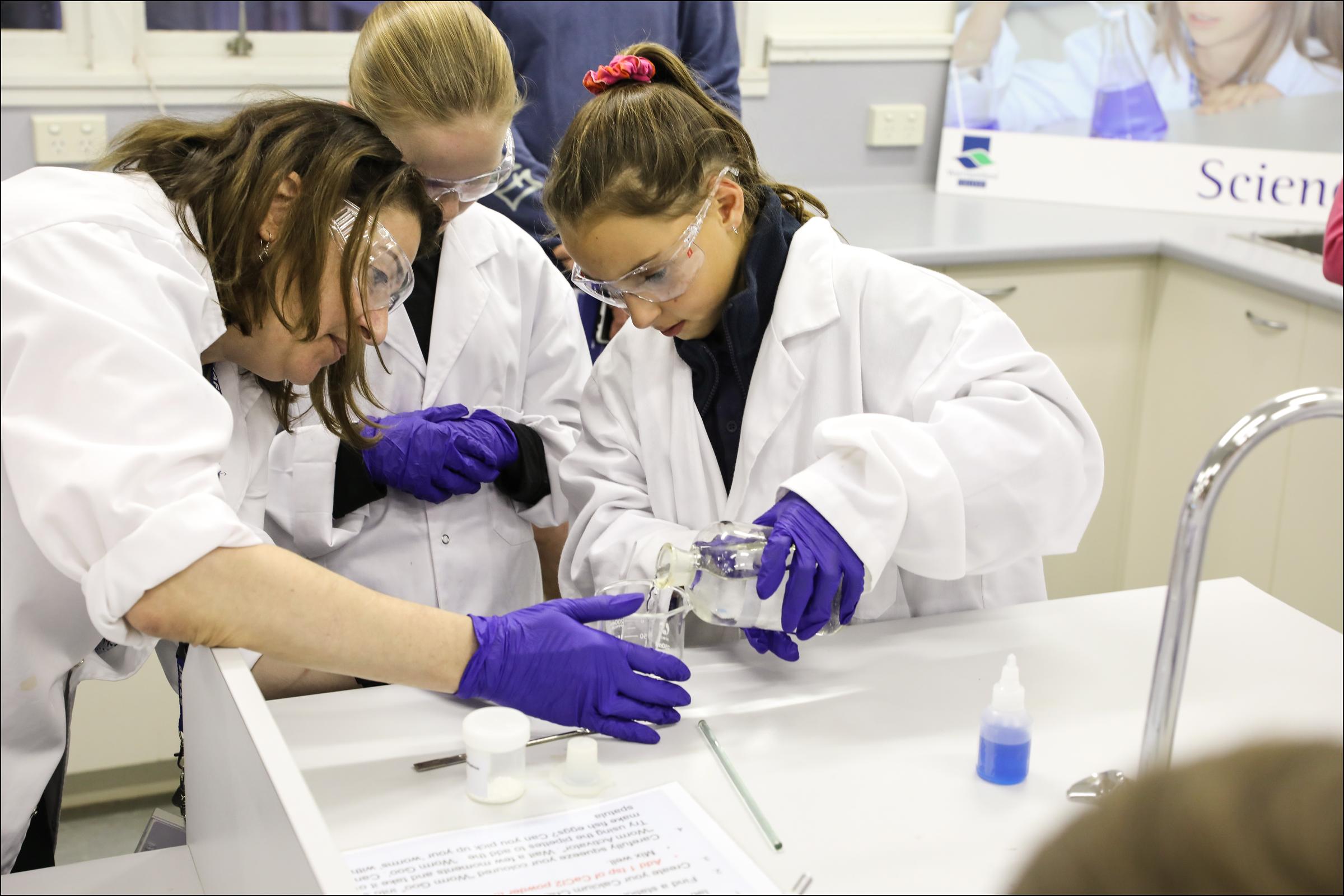Principal's Report

When I was growing up and walking the corridors of Warrnambool High School as a student, I was fascinated with pretty much any type of learning put in front of me. I loved writing and getting lost in amongst the narratives of science fiction and fantasy. I enjoyed cooking, textiles and media. I looked forward to playing Saxophone in the school band and revelled in the challenge of debating in eisteddfods. I found science captivating as it helped me to understand the world around me. History was seemingly created in the present as the Berlin Wall was being dismantled while I studied the Cold War. Geography allowed me to dream of distant lands and cultures and ultimately gave rise to me spending every spare dollar on plane flights across the world during my 20s. Yet it was maths that I was constantly drawn to, with a passion, a sense of confidence and a desire to seek out solutions. I suspect part of this attraction to the universal language was genetic – my grandfathers had both been engineers and my father was an engineer. I was told I was good at it from the junior years of primary school and this reinforced my self-belief. I wouldn’t say I was a natural – I knew that without effort I wouldn’t equate to the square root of negative one, but I enjoyed the challenge of pushing into new maths territory, drawing connections with previous concepts and seeing numbers and numeracy in everyday life.
And so, after I’d studied Engineering myself, worked in the corporate work for 5 years, studied Primary Teaching and ultimately returned to the classroom as a grade 2 teacher, it pained me to witness students physically and mentally switching off whenever fractions were mentioned. I mean, what could be more stimulating than converting percentages into decimals into equivalent fractions and back again ;) It took me a few weeks to realise that perhaps my ambitions to create the next generation of Engineers might be a little short sighted (and let’s face it, somewhat misguided). And so, my mission became to bring a mix of high expectations, relevance and joy into the learning of maths, wherever my student’s capabilities were at. As with all things in life, my success in achieving this was mixed, but it didn’t stop me self-reflecting on how I could improve my practice to aid my students.
I’m reflecting on all this now, as I’m writing this from my hotel room in Melbourne in between day 1 and day 2 of a professional development course simply called ‘Leading Maths’. Three of us from Warrnambool College have elected to take this journey of learning in 2019 to explore what it would look like if we were to enable all students to engage with maths in a vigorous and rigorous fashion. We’re being asked to read through research of great mathematics practice and to collect our own evidence by interviewing our students to seek out what makes a great maths student (and a great maths teacher). We’re being encouraged to self-reflect on our own roles as leaders of maths learning and to build the capacity of others to teach numeracy in our school. Ultimately we’re being asked to strategical design for numeracy learning at Warrnambool College that improves the learning outcomes for all students. And I’m confident that, despite the fact that there’s much to learn, much to plan for and much to improve, we’re well on the way to creating a maths environment that genuinely engages all students. I say this with conviction because, the more we delve into what constitutes great maths learning, the more I recognise the same principles that underpins our present journey toward great learning at Warrnambool College. That is students exhibiting reflective thinking, self-directed goals, self-confidence, collaboration, and joy in learning. And of course our staff exhibiting and modelling the exact same qualities, mindsets and behaviours in their own learning and development.
Ultimately I’ve realised that there’s not much point wishing for a world of Dave clones that are naturally drawn to maths, Engineering and a career that seeks out challenges to grapple with. But the point of education is to create an environment where students are intensely drawn to the learning, despite their so-called natural capacity or current capabilities. That’s the environment I was afforded as a student of Warrnambool High School and it’s the environment that we strive to provide for the students of today, in maths and in all aspects of our school. I look forward to sharing this journey of reflection and improvement with you all as the year and my learning in this space continues.
Kind Regards,
Dave Clift
Principal
